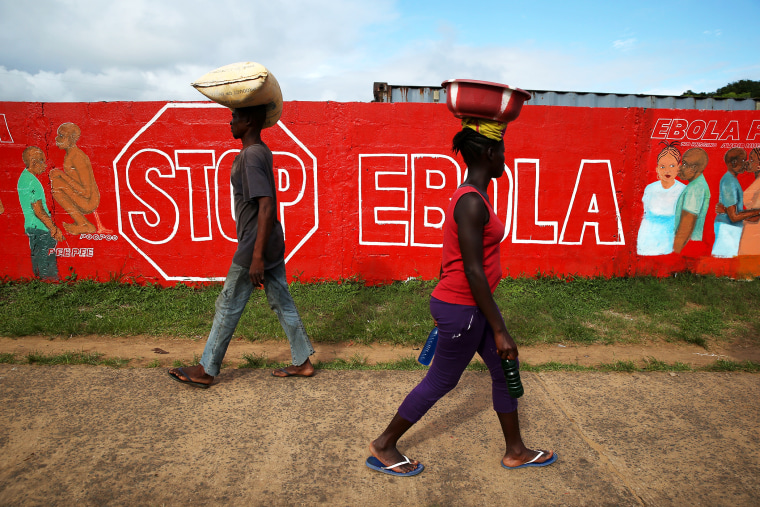The Liberian government is planning to prosecute 42-year-old Thomas Eric Duncan for answering "no" to a health form question asking whether he'd come in contact with an Ebola victim prior to boarding a plane out of the country. Duncan is the first person to be diagnosed with Ebola in the United States.
Isaac Jackson, deputy information minister for public affairs, told NBC News Thursday that Duncan had "lied under oath" when he responded that he hadn't been in contact with someone carrying Ebola in the last 21 days. Duncan will be prosecuted under Chapters 13 and 14 of the Public Health Law of Liberia, he added, two codes involving negligent conduct of putting others in danger when an individual is fully aware of health risks.
Duncan arrived in Dallas on Sept. 20, six days before he initially sought care for a fever and abdominal pain at the Texas Health Presbyterian Hospital. Somehow, his travel history was not "fully communicated" throughout the hospital, health officials said, and Duncan was sent home with antibiotics. Two days later, he was admitted, and on Sept. 30, medical tests confirmed he had Ebola.
Texas Health Presbyterian Hospital released a statement on Thursday explaining the steps in which Duncan was treated upon being admitted. While he mentioned to nurses that he had traveled to Africa, physicians weren't immediately aware of the fact because the electronic health records the hospital uses have different nursing and physician sections. The hospital has now included a travel section in both workflows.
Related: Health officials looking at 100 possible contacts of Ebola victim
According to the CDC, Duncan's temperature was normal when he boarded the plane in Liberia, meaning others on the flight were not at risk of contracting the disease. In order for Ebola to spread, there has to be direct contact with the bodily fluids of a person who is symptomatic. As a courtesy, United Airlines is proactively reaching out to all passengers on Duncan's flight, NBC News reported — not because airline officials believe they're in danger, but because they feel the passengers have a right to know.
The CDC is investigating the exit form Duncan filled out before leaving Liberia. This form asks travelers if and when they participated in the care giving or funeral processes of a person who may have had Ebola. A cab driver in Liberia told NBC News that, on Sept. 15, four days before he left for the U.S., Duncan assisted a pregnant friend who later died of the deadly disease. Ducan possibly believed at the time that her illness was pregnancy related.
Photo Essay: Ebola continues its deadly march
"The reality is, it's the case that individuals often don't know what their exposure may have been," said CDC Director Tom Frieden on a press call Thursday. It's also the case, he added, that "not all individuals disclose what their exposure may have been."
Despite these travel pitfalls, Frieden said that isolating those West African nations hit hardest by the current Ebola epidemic will only put more lives in danger — not just in the region, but around the world.
“We can’t make the risk zero until the outbreak is controlled in West Africa,” he said. “What we can do is minimize that risk as is being done now in Dallas, by working to ensure that no more individuals are exposed than have already been exposed.”
President Barack Obama spoke with Dallas Mayor Mike Rawlings on Thursday to discuss the federal, state, and local responses and to ensure that adequate resources are available to handle the case safely.
